Kittredge Auto Rebuilders is the country’s second oldest I-CAR Gold Class shop and invests in multiple OEM certification programs
Kittredge, Colo.—There’s no stoplight in Kittredge (population: 1,300), a hamlet nestled in the mountains of Colorado’s Front Range that’s 40 minutes west of Denver. And if you blink as you drive through on Hwy 74 you might only see it in your rearview mirror.
But it’s home to Kittredge Auto Rebuilders, a small-town shop with big-city credentials that focuses on factory certifications and has been an I-CAR Gold Class shop for decades.
“I saw the benefit of I-CAR training from the beginning. The industry needs to be on the same page for repairs and have uniformity,” said Kenny Erhardt, who has co-owned the shop with Steve Peel since acquiring the business in 1990. “We’ve been an I-CAR Gold Class shop for 27 years. The only other shop in the country that has more years is Eric’s Auto Service CARSTAR in Tuscon, Ariz., with 29.”
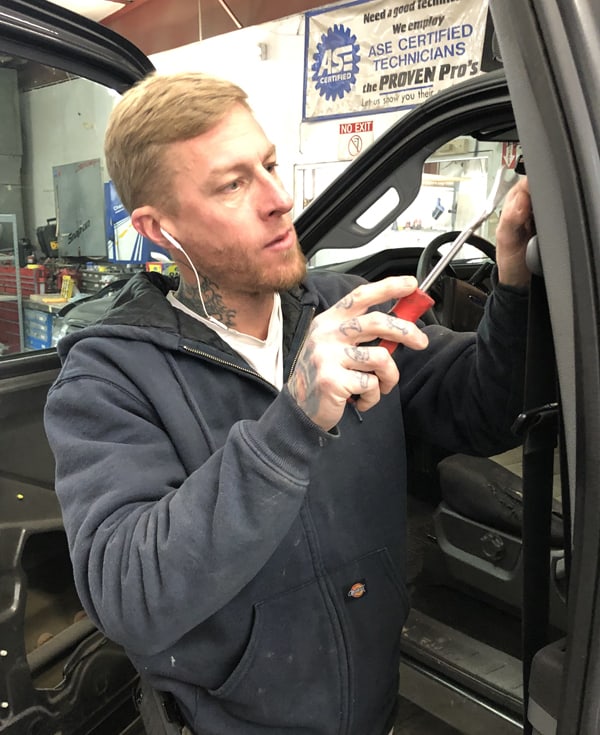
Erhardt is also adamant about having factory certifications — “a necessity” — as vehicle technology has changed the dynamics of collision repair.
“The John Eagle Collision Center lawsuit in Texas flipped the table of collision repair from a liability standpoint,” he said. “It stresses the importance of having factory certifications for proper repairs and to have a manufacturer’s support in a court of law. Our techs don’t dare begin a repair without first researching proper procedures.”
The shop has factory certifications for Nissan, Subaru, GM, FCA, Ford, Kia and Hyundai. When a vehicle arrives for which Kittredge Auto Rebuilders doesn’t have a factory certification, the shop uses AllData, and while he lauded its repair information, Erhardt said he is vexed by some OEM certification-cost barriers.
He has considered the Honda Pro-First program, but at $7,500 a year, he says he can’t justify the cost with the number Hondas he repairs.
“Manufacturers want shops to fix vehicles according to their repair procedures, which is fine and good, but don’t charge me $7,500 a year to get those procedures. I’m just a little guy up in the mountains — that’s a lot to afford.”
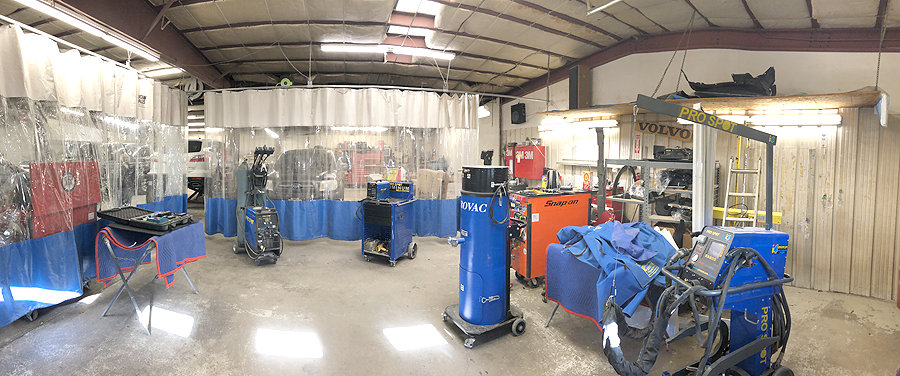
Tooling up for proper repairs
The shop has heavily invested in tooling and equipment to meet factory certification criteria, though fortunately, he said, much of the equipment can be used across multiple manufacturers, such as inverted spot welders.
“They’re now required by all OEMs, and — back to legal concerns — if you’re in a situation where a vehicle wrecks and all the spot welds blow out, then you’ll be asked, ‘What kind of equipment did you use?’”
Ford requires certified shops have a factory-approved vacuum to collect aluminum dust, which Kittredge invested $8,000 to meet criteria along with its dedicated curtained repair bay.
AT A GLANCE
Facility: 8,700 square feet
Staff: Two body techs, two A-techs, painter, detailer, three office employees (presenting seeking a B-tech and helper)
Monthly car count: 40
Cycle time: 5-7 days
Shop management system: CCC
Paint: Axalta
Annual revenues: $1.4 million
“The reason Ford certified their aluminum trucks is because they didn’t want to catch the liability if, for example, a shop burns down because aluminum dust wasn’t contained.”
He added that he’s seeing some shops are now repairing Ford aluminum trucks without certification.
“If you’re not certified, you better have that vac.”
Additional investments include a three-phase welder, required by Ford, that switches between steel, aluminum and silicon bronze welding materials.
Replace versus repair
Proper repairs and liability concerns also steer Kittredge Auto Rebuilders to using OE parts exclusively.
“Manufacturers don’t want shops to use replacement aftermarket windshields anymore because they often don’t meet their camera lense requirements for proper calibrations,” Erhardt said. “And Subaru doesn’t allow for repairing or straightening of bumpers now, so they all must be replaced because of the collision avoidance sensors.”
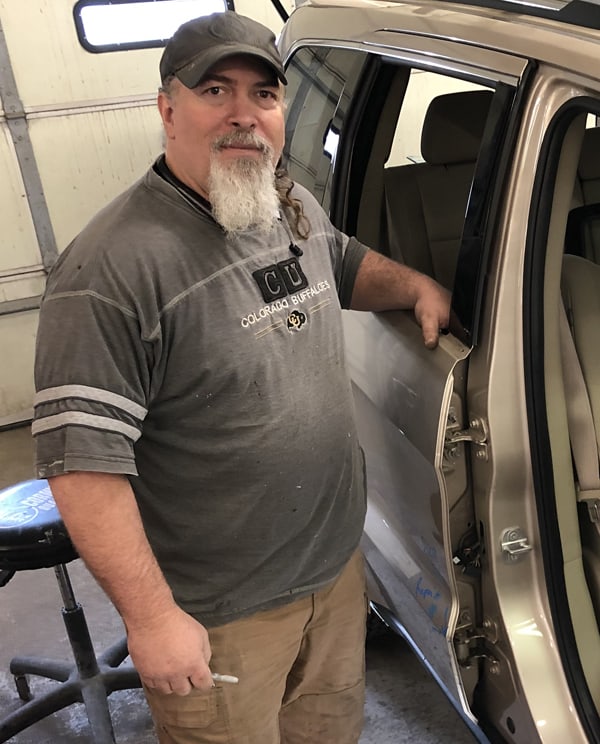
The shop sources Subaru and Toyota parts through Groove in Denver and Nissan parts from Tynan’s Nissan in Aurora.
“There are so many Subarus up here that I can order up to $10,000 in parts a month. The best thing manufacturers have going for shops is price-matching with CollisionLink, PartsTRAC, and PartsBridge, which makes sourcing OE parts so much better.”
Erhardt had been with a DRP, but dropped it after it was telling him how repair vehicles. “There’s more work than I need with the same work I was putting into having the DRP. They were killing me on my severity loss because there are a lot of high-end late model vehicles in the neighboring town of Evergreen. And I was always being asked about my aftermarket parts usage and cycle times.”
It wasn’t in the best interest of his customers, he said.
“People are loyal to their communities and businesses, and as long as I can keep up and do their repairs correctly with the right equipment and procedures, then it makes me better and them safer.”

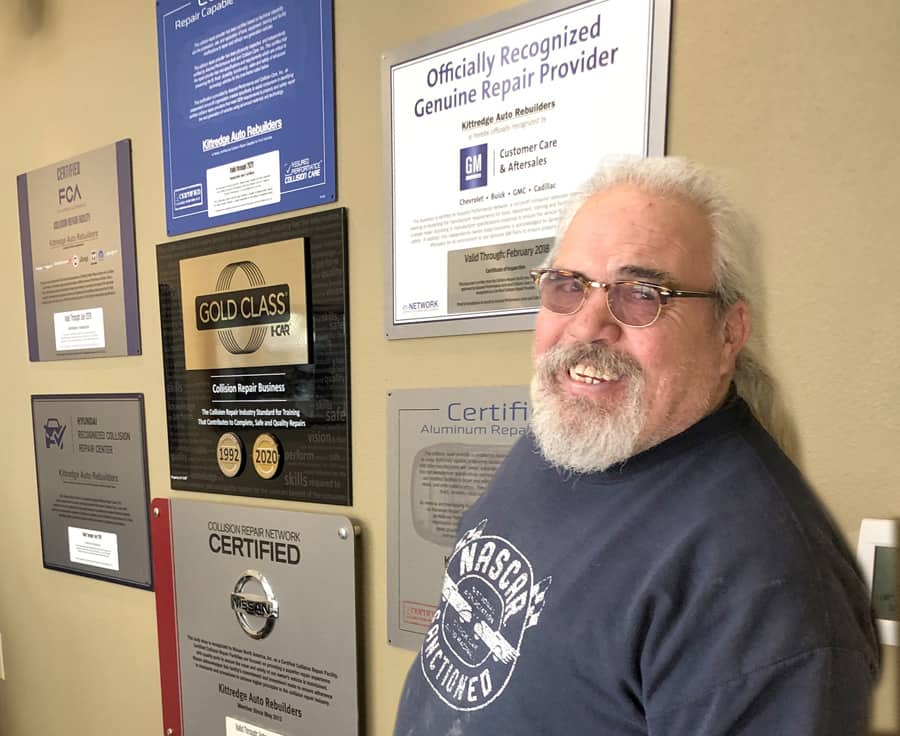
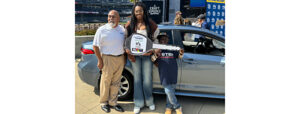

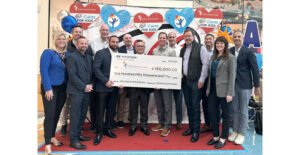
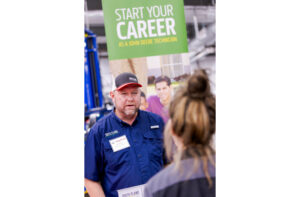

Comments are closed.